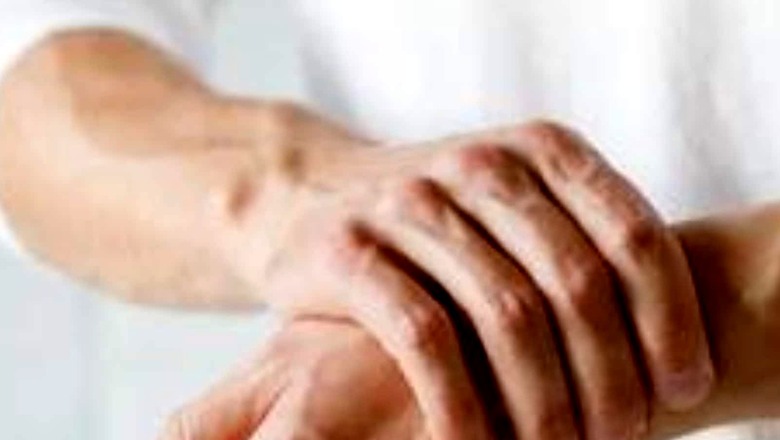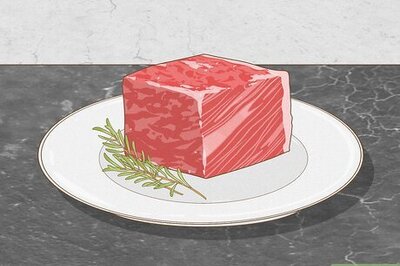
views
Winter months are much more challenging for arthritis patients as the chilly winds leads to severe pain in the joints. The abrupt drop in barometric pressure brought on by the drop in ambient temperatures can accentuate the discomfort for people suffering from arthritis.
As the temperature drops, the capillaries narrow and cause stiffness and joint swelling. The cold air decreases the blood flow to the hands and feet, and also low levels of Vitamin D in the body, which in turn causes the weakening of bones and joints.
Arthritis is a common joint problem that causes pain, swelling and tenderness in one or more joints. It can develop at any age. However, people with those having a family history of arthritis or suffering from previous joint injuries and obesity are more at risk of dealing with arthritis conditions.
Here are the most common warning signs of arthritis you need to know and some important tips you can follow to prevent severe joint pains.
Morning stiffness
Body stiffness that lasts longer than an hour is a sign to suspect arthritis, especially when waking up in the morning or after sitting on a chair for a long time.
Constant pain
Arthritis pain can be constant or may come and go. The pain can occur in one part of the body or in many different parts, even when you are moving or at rest.
Inflammation and swelling
Arthritis is mainly associated with swelling and inflammation in the joints. The skin over the affected part can become red and swollen or feel warm. If swelling lasts for more than 3 days then you must visit a doctor.
Difficulty getting up
If the pain is so much that you find it hard to get up from your bed or chair, then it could be a sign of developing arthritis in your joints.
Some important tips to prevent severe joint pains during winter:
- Stay active and keep moving, take a walk or do some daily routine activities.
- Keep your body warm, to get relief from joint pain, cover your hands with woollen gloves and feets with socks and stockings.
- Maintain a healthy weight, perform exercises suggested by your physiotherapist.
- Stay hydrated, drink a warm cup of tea or have a bowl of soups.
- Monitor your vitamin D levels, spend some time outdoors and take in natural sunlight.
- Get a massage around affected joints to reduce muscular pain.
Read all the Latest Lifestyle News here




















Comments
0 comment